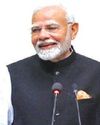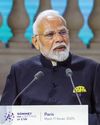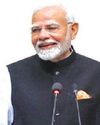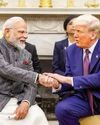
Last week Beijing declared that rare earth metals (REM) in China are the property of the state, warning that “no organisation or person may encroach on or destroy rare-earth resources”. The country’s State Council also announced that from 1 October the government would operate a traceability database to ensure that it has full control over the extraction, use and export of the metals. Why?
First of all, remember that this move follows a growing row between China and the US over the increasing numbers of cheap Chinese electric vehicles starting to flood the market. Last month the European Union announced tariffs of up to 48% on EVs made in China, including those manufactured by MG, Volvo and BYD, in a row over what the EU claims are unfair subsidies from Beijing. This action was the result of a probe launched last year by the European Commission that concluded European competitors were being harmed by Chinese subsidies which allowed manufacturers to keep their costs artificially low. China rejected the claim, arguing that its industry has flourished naturally.
REMs and EVs are inextricably linked, so it’s almost certain that these two events are connected. You can’t make electric cars without the use of many REMs. In fact, you can’t make a huge number of things without REMs. If you are reading this newspaper on a tablet or smart phone, you will be holding up to 16 REMs in your hand. Among many applications, REMs are used to make batteries and control systems in EVs, red lasers in precision guided missiles, signal boosters in trans-oceanic cables which make the internet possible, control rods in nuclear reactors, magnets in wind turbines and are even used in the treatment of lung cancer. The list goes on and on. This is why there is a brutal competition developing between the US, China, Russia and the EU over a small group of REMs on which their economies depend.
This story is from the July 07, 2024 edition of The Sunday Guardian.
Start your 7-day Magzter GOLD free trial to access thousands of curated premium stories, and 9,000+ magazines and newspapers.
Already a subscriber ? Sign In
This story is from the July 07, 2024 edition of The Sunday Guardian.
Start your 7-day Magzter GOLD free trial to access thousands of curated premium stories, and 9,000+ magazines and newspapers.
Already a subscriber? Sign In
Fake viral letter: Amritpal Singh's family files complaint
A viral letter doing the rounds of social media claims that Amritpal Singh proposed an alliance between a Sikh political party and the BJP. It also claims that Amritpal had discussions with PM Modi and HM Shah.
Court pulls up lawyer over misuse of video conferencing
Delhi's Karkardooma Court on Friday reprimanded a lawyer, Mehmood Pracha, for misusing video conferencing facilities by appearing while walking in an open land and subsequently from a moving motor vehicle.
BBC FIRMLY TETHERS ITSELF TO THE PAST
COLONIAL MINDSET

PM Modi to participate in Bharat Tex
Prime Minister Narendra Modi will participate in Bharat Tex 2025 on Sunday.

CHINA'S MILITARY IS PROVING TO BE A PAPER DRAGON
Beyond training deficiencies, China's military modernisation efforts have been crippled by corruption.

Redefining Work: The Debate on Working Hours
The nature of modern industrial work is such that for most employees, work is merely a means to sustain life, fulfill desires, and achieve materialistic objectives. For them, the purpose of work is to maximize output to input.

BJP Aims To Replicate Delhi Success In Bihar Polls
With its win in Delhi, which marked the culmination of nearly three decades of effort to come to power, the BJP strategists are now hoping to replicate this success in Bihar, where elections are scheduled in less than eight months.

FPIs Took Out About Rs 1 Lakh Crore in Last 1.5 Months From Indian Markets
Foreign investors have been aggressively selling Indian equities since the beginning of 2025, with total outflows now approaching the Rs 1 lakh crore mark.

Modi and Trump Script Win-Win Outcomes in Washington Summit
President Trump has a shrewd grasp of geopolitical realities, a trait he shares with PM Modi. Both leaders know that Cold War 2.0 is as existential a combat as Cold War 1.0 was.

India's Inflation to Average 4.8% in 2025
India's inflation is expected to average around 4.8 per cent in 2025.